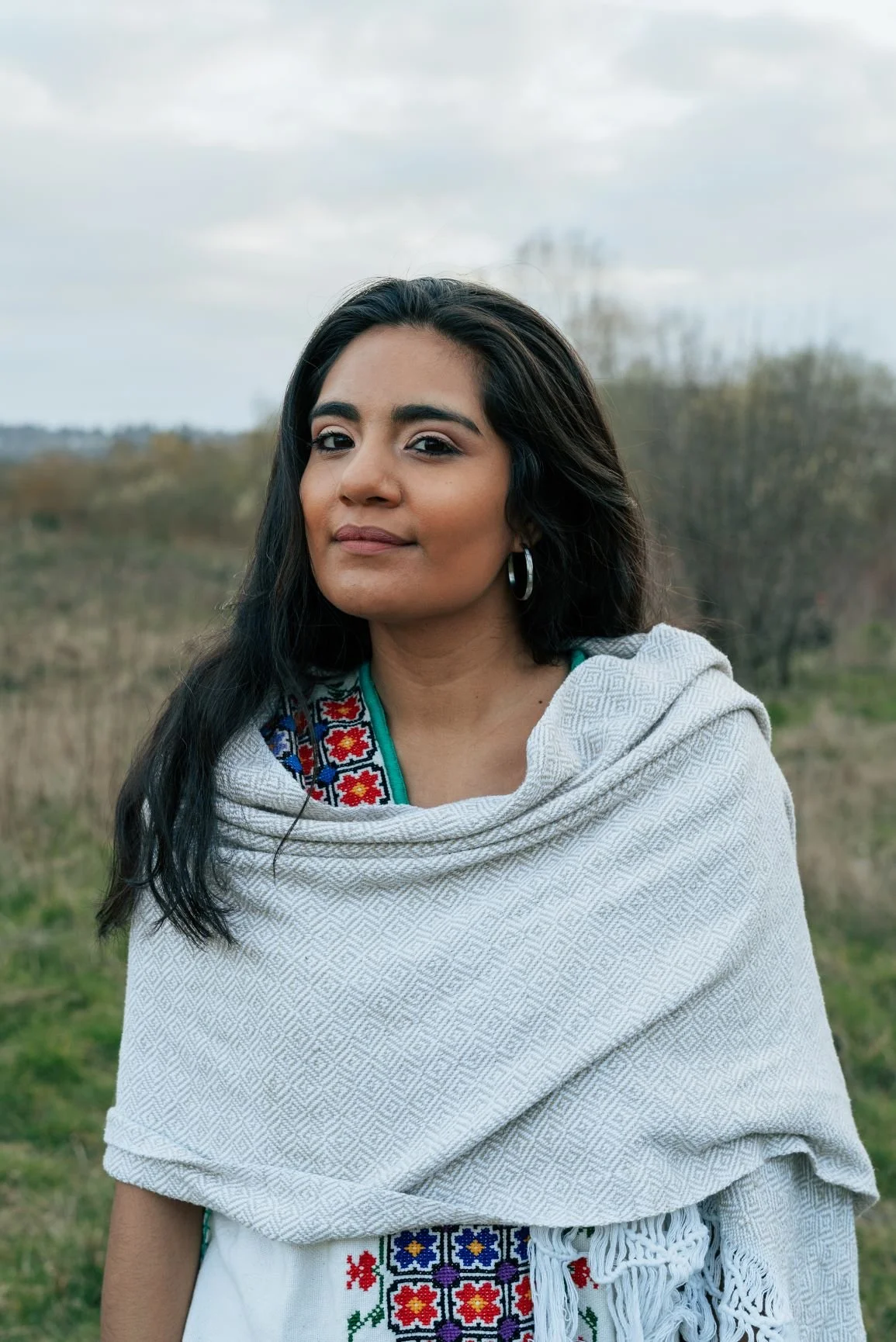Spotlight on Samara Almonte
/BY CARA SCHAEFER
How do the stories we tell shape our relationship to the earth? We spoke with Samara Almonte, a multimedia storyteller and host of the podcast Raíces Verdes, about capturing stories, imagining a better world, and reconnecting to your roots.
Photos courtesy of Samara Almonte.
OUT THERE: How did you find your voice as a storyteller?
SAMARA ALMONTE: I think this was always something that I was meant to do. My parents would joke about me being the kind of kid that was always asking, “Why? Why this? Explain this to me.” I was very curious as a child, and I was lucky enough to grow up in an environment that really allowed for that. And I’ve always enjoyed listening to stories by my elders, or my peers, and learning through the experiences of other people.
Eventually, in undergrad, I refound this part of me as I started connecting more with my indigenous roots and indigenous knowledge in my community. I realized that storytelling is fundamental to our survival. And I figured it was time for me to really own that gift I've been given, and to be someone in my community that goes out and captures stories.
OT: In what ways do you think storytelling, especially storytelling centered around environmental justice, can affect others?
SA: I think with climate change, or any social issue really, a lot of people will create this sort of doomsday narrative. And those are stories themselves, right? They're very dystopian stories. And although there's truth in them, I think at the end of the day storytelling is important because we need those stories of hope.
A lot of my mentors, whether I've met them in person or not, have been writers like bell hooks and Angela Davis, and indigenous scholars like Robin Kimmerer and those from my community, that are writing from this perspective of radical imagination, radical love, and transformative justice. They all are talking about how a different world is possible, because we had other systems in place before the development of capitalism. Before colonial genocide began to take place, we had different structures of being in relationship with the earth.
With storytelling, we're capturing some of that ancestral knowledge, but also bringing it into the present and future, and weaving that into, ‘Okay, what kind of stories can we tell, to build our imagination of a different world? ‘
If we're only telling stories of doomsday for the climate crisis, we're not going to want to get anything done, because it's gonna seem like, ‘What's the point?’ If we're telling stories that a different world is very much possible, that it is tangible to dismantle these systems, I think that gives people a lot more courage and hope to organize and come together, because there is something that we're working towards that is beautiful. A different system that could allow for more conversations of healing, and reciprocity with the earth, and have a regenerative, type of mindset. Storytelling is important so that we have the hope to keep going.
OT: How do you define raíces verdes, or green roots, and what does that mean to you personally?
SA: The concept really came to me thinking about my story of diaspora. My family has migrated north up to now what we call Washington State. We've lived across the West Coast, just constantly migrating up north, and I was thinking about how every move sent us further and further away from our ancestral home. And thinking about how I miss my grandmother, and my cousins, and all these different people from my community, I also eventually realized I missed a lot of the land and earth elements of our territory. I would miss the different bodies of water that we have connections to, and the different foods that we traditionally could harvest throughout the year.
Thinking about that, I was like, ‘I think all of us, especially folks of the diaspora, really should think about what are our ancestral connections to land and the environment. How can we reconnect with that part that has been essentially numbed a little bit by these systems like capitalism?’ For us, for Black and indigenous people and people of color, those connections to land and the environment had been almost erased, or attempted to be erased, by colonial genocide.
I think reconnecting to those parts of us can look different ways. For some people, maybe reconnecting means going out more in nature, and just finding pleasure in that like their ancestors might have. Or maybe for someone that means finding ways to cook more with their traditional foods. That's a way of reconnecting with your green roots. Or it can look like learning your native language, and then you find out how to talk about nature in your native language.
OT: What’s an episode or two of Raíces Verdes that you would recommend new listeners start out with?
SA: If you want to go super far back, I would say that very first interview I do with Dario Castellon about homecoming and romanticizing the environment in our homelands. I like it because we both talked about how we often miss our homelands, but also understand that going back home wouldn't be ideal. In this case, he talks about being queer, and how he would face different types of struggles if he decided to go back to his rural community, even though he would be more connected to the land. If people are looking for something more recent, I also really liked the series around being Muslim and thinking about the environment. What we'll consider traditional nature writing, it's a lot of Christian white men, so I think it was really beautiful for me to focus on three different Muslim woman that wanted to talk about how Islam really helps them connect to the environment.




